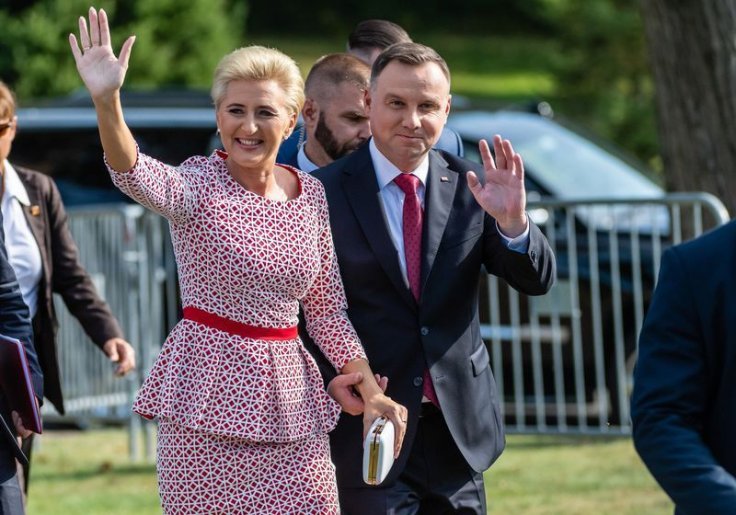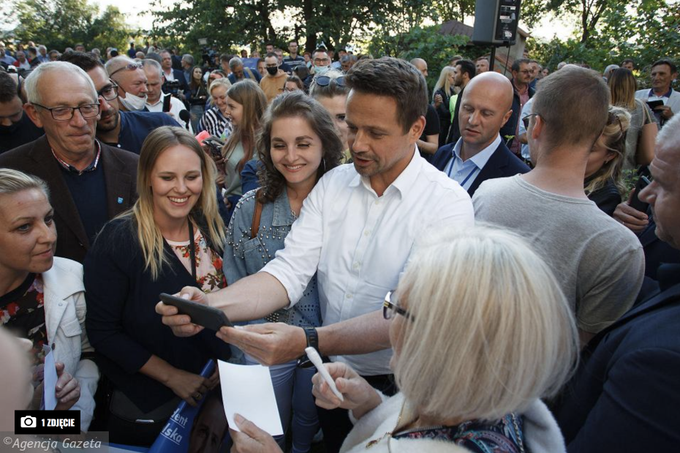Among the slew of right-wing nationalist leaders that have risen to power in the world over the last decade, Poland's Andrezj Duda presents an archetype. He is vehemently opposed to European Union, devotedly committed to traditional Christian values and is unrepentantly nationalistic. To complete the package, he is regarded as authoritarian in his style of functioning.
In the Presidential election taking place today, he is facing off against a man with a polar opposite ideology. Rafal Trzaskowski is a former mayor of Warsaw and has rapidly gained in popularity over the last few months. He is committed to the European Union and was part of the EU former President Donald Tusk's government in the country.
Apart from his support for EU, Trzaskowski is also running on ideas diametrically opposed to the incumbent's social conservatism. However, becoming President won't ensure the changes that he wishes to bring in the country. The Parliament is still controlled by the conservative Law and Justice Party (PiS), with which Duda is aligned.

But becoming the president will be the first step towards rolling back the control of right-wing in Poland's politics.
System of elections
Poland follows a two-stage election system for the post of President. In the first round of polling, which took place on June 28, Duda emerged as the frontrunner with 43.5 percent vote while his challenger got 30.5 percent. Not having secured a majority in the first round, the current president had to square off against Trzaskowski who came second in a field of 11 candidates.
The elections had to be postponed due to the outbreak of Coronavirus. This has been detrimental to the cause of Andrezj Duda as he looked way ahead of his rivals in May, when the elections were originally scheduled. Since then, Trzaskowski has made progress and now looks set to gain most of the non-Duda votes from the first round.
This means that the contest is poised on a knife's edge. According to opinion polls done in the run-up to the actual elections, the difference between the two contenders has been within one percentage point.

Duda's appeal
Andrezj Duda has been a controversial figure. Way back in 2017, US President Donald Trump made a highly-publicized visit to Poland and gave an important speech in Warsaw. Last month, President Duda became the first foreign leader to visit the White House after months of abatement in diplomatic visits due to Coronavirus pandemic.
The respect shown by the US leader to his Polish counterpart is seen as deriving from ideological affinity. Both have used nationalism as the main plank of their politics and both have faced strong backlash from liberal quarters.
However, President Duda has gone much further than most leaders in his defence of traditional values. He famously compared 'LGBT ideology' to Soviet communism and said the former poses an even bigger threat than the latter once did. Not surprisingly, charges of homophobia have been levelled against him.
However, apart from social issues, the President has also faced criticism for measures regarded as impinging on the independence of judiciary.
"I believe we can build the Poland we dream of; a fair Poland, a rich Poland, a strong Poland... a Poland that can protect the weak and doesn't have to fear the strong," Duda said on Friday. He has also talked about defending a Poland which is "built on our inviolable tradition which is sacred to all of us and in which we have been brought up for generations."
Trzaskowski's message
Trzaskowski has given the opposite message, one where he talks about protecting country's institutions and bringing a more progressive outlook to the government.
"It's now or never... (Either the incumbent administration would) continue to destroy independent institutions, further try to politicise courts, destroy local governments and threaten the freedom of the media, or we will have a democratic state where the president restores the balance," the challenger stated.
It's a classic battle between Conservatism and Liberalism. Whoever wins, the polarized positions of the two contestants would ensure that the politics remains divided.








